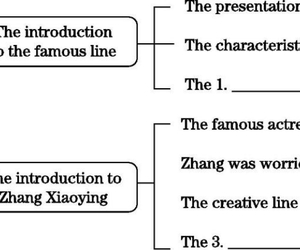|
新课6 UNIT2 TRAVELLING AROUND(语法写作预习) 1.语法:现在进行时表示将来 2.Writing:旅行计划 语法精讲 现在进行时表示将来 一、现在进行时的结构和基本用法 1.Hurry up! They are all waiting for us. 快点! 他们都在等着我们呢。(现在此刻) 2.Why are you crying? Is there anything wrong?你为什么哭啊?出什么事儿了吗?(现在此刻) 3.How are you getting on with your physics this term?这个学期你的物理进展如何?(现阶段) 4.I'm translating a novel these days. 这些天我在翻译一部小说。(现阶段) 用法归纳 (1)现在进行时由“am/is/are+doing”构成。 (2)基本用法:表示现在此刻(说话时)正在进行的动作或现阶段正在进行的动作(说话时未必在进行)。由于这种用法是表示正在进行的动作,所以该用法中的谓语动词通常用① 延续性 动词。 二、现在进行时表示某种特定的将来的动作 1. 现在进行时可以表示按计划、安排或决定要做的事 1.We are visiting the Great Wall this summer holiday. 今年暑假我们(计划/打算)去参观长城。 2.We are going there by train. 我们要坐火车去那儿。 3.We are staying there for a week. (延续性动词)我们要在那儿待一周。 4.We are leaving for the game in an hour. (非延续性动词)一小时后,我们将动身去看比赛。 用法归纳 现在进行时可以表示一个按② 计划 、安排或决定将要发生的动作,属于一种特定的将来,此时谓语动词没有特别的限制(延续性动词与非延续性动词均可),译成汉语时句中可以添加“计划/打算/决定/要”这样的词。 2. 现在进行时可以表示即将、马上要做的事 1.I am leaving. (非延续性动词)我要走了。 2.These people are dying from lung disease. (非延续性动词)这些人因肺病而生命垂危。 用法归纳 现在进行时可以表示即将、马上要做某事(这种用法只适用于③ 非延续性 动词)。常见的动词(词组)有come、go、leave、start、begin、arrive、run out(耗尽)、die等。
三、现在进行时表示将来与其他时态表示将来的区别 1.We are moving into the new house next month. 下个月我们要搬入新居了。(“计划,安排”的将来) 2.The train from New York is now arriving. 发自纽约的列车马上就要到了。(非延续性动词,“即将”的将来) 3.If you don't work hard,you will fall behind. 如果你不努力工作,你就会落后。(某些状语从句中将来的动作习惯用一般现在时表示,遵循“主将从现”的原则) 4.They are going to get married. 他们打算结婚。(“打算”的将来) 5.Dark clouds are gathering. It's going to rain. 乌云聚集,天要下雨了。(“有迹象表明”的将来) 6.I will be 55 years old next year. 我明年将55岁。(单纯的将来) 用法归纳 英语中将来的表达并非一概而论,而是分成各种“不同的将来”进行表达。有的是“按计 划、安排”的将来be doing,有的是“即将”的将来be doing (非延续性动词),有的是“有迹象表明”或“打算”的将来be going to do,有的是单纯的将来will do,有的是状语从句的习惯要求等。 四、现在进行时的其他特殊用法 1. 现在进行时可以表示一个反复发生的短暂性动作 Someone is knocking at the door. 有人在敲门。 They are hitting the bell in turn. 他们在依次敲钟。 用法归纳 现在进行时可以表示一个现在不断重复发生的短暂性动作,并非表示一个动作的持续。 2. 现在进行时表示特定的感情色彩 She is forever thinking of others. 她总是为别人着想。(并非正在进行,暗含赞扬之意) She is always looking for her keys. 她总是找钥匙。(并非正在进行,只是经常出现这种情况,暗含批评、抱怨之意) 用法归纳 现在进行时的句子中含有always或forever等频度副词时,不表示④ 正在进行 的动作,而是表示一种频繁发生的动作,且附带表达说话人的感情色彩,如厌恶或赞许等。
一.单句语法填空 1. The students are playing (play) games in the park at the moment. 2. My washing machine is being repaired (repair) this week,so I have to wash my clothes by hand. 3. Because the shop is closing (close) down,everything is sold at half price. 4. —Mr. Smith,we want to hear your opinion about the current games. —OK,I am coming (come) to that. 5. As soon as he comes (come) back,I will tell you. 二.完成句子 1. 她总是在屋里四处走动,太烦人了。 She is always walking around in the room. It's so annoying. 2. 我明年将要上高中了。 I will go/am going to high school next year. 三.单元语法专练 1.Food supplies in the flood⁃stricken area (run) out. We must act immediately before there is nothing left. 2.Betty (leave) for Guangzhou by plane at 3:00 tomorrow afternoon. 3.—Hi, Linda. What are you doing? —Hi, David. I (prepare) for the test tomorrow. 4.Ladies and gentlemen, please fasten your seat belts. The plane (take) off. 5.We (rent) a car when we travel in Yunnan next week. 6.My uncle (return) from the USA tonight. I'll go to the airport to pick him up. 7.The mid⁃term exam (come), and everyone is trying hard to study. 8.Part of being a good thinker is experiencing things that are seemingly unrelated to what you (work) on at the moment but give you fresh ideas about your work.(2022浙江) 1.are running 句意:洪水灾区的食物供给快要用完了。我们必须在什么都不剩之前立即采取行动。此处应用现在进行时表示即将、马上要发生的动作。故填are running。 2.is leaving 句意:贝蒂明天下午3点将乘飞机动身前往广州。此处应用现在进行时表示按计划、安排或决定要做的事。故填is leaving。 3.am preparing 句意:——嗨,琳达,你在干什么?——嗨,戴维,我正在为明天的测试做准备。此处应用现在进行时表示现在此刻(说话时)正在进行的动作。故填am preparing。 4.is taking 由前面的“女士们、先生们,请系好你们的安全带”可知,这里指“飞机马上就要起飞了”。此处应用现在进行时表示即将、马上要发生的动作。故填is taking。 5.are renting/will rent 句意:我们下周去云南旅游时要租一辆汽车。此处可用现在进行时表示按计划、安排或决定要做的事,也可以用will do表示单纯的将来。故填are renting或will rent。 6.is returning/will return 句意:我叔叔今晚将从美国回来。我要去机场接他。此处可用现在进行时表示按计划、安排或决定要做的事,也可以用will do表示单纯的将来。故填is returning或will return。 7.is coming 句意:期中考试马上就要来了,所有人都在努力学习。此处应用现在进行时表示即将、马上要发生的动作。故填 is coming。 8.are working 此处指“经历看起来与你目前正在做的事情无关的事情”。此处应用现在进行时表示现阶段正在进行的动作(说话时未必在进行)。故填are working。 一.用所给单词正确形式填空 1. —Is everybody here?—No. The speaker _________ (come)soon. 2. The weather _________ (get) warmer and warmer. 3. I _________ (write) a new book these days. 4. The girl ____ always ________(leave) things about. 5. —I’m going to the to study law.—How long _______ you _______ (stay)there? 6. What will you want to be when you ______ (grow) up? 7. Look at the lightning. It_________ (rain). 8. Our English teacher _________ (leave )Shanghai in a few days. 9. —Jim is in town for a few days. —Really? Great! I _________ (give) him a call. Is he staying at his Aunt Rosa’s? 10.Don’t make noises. Father ________ (listen)to the news. 1.is coming 2. is getting 3. am writing 4. is; leaving 5. are ;staying 6. grow 7. is going to rain 8. is leaving 9. will give/going to give 10.is listening 二.按照要求翻译下列句子。 你要在北京待多久? (用现在进行时表示) ________________________________________________________________________ 今天下午我要去看牙医。(用现在进行时表示) ________________________________________________________________________ 我将更加努力以取得更大的进步。(shall/will do ; make progress) ________________________________________________________________________ 你今天晚上打算做什么?(be going to do) ________________________________________________________________________ 你必须九点以前回来。(be to do; back) ________________________________________________________________________ 我正要上床睡觉,这时电话响了。(be about to do; ring) ________________________________________________________________________ 火车明天早上六点开。(一般现在时表将来) ________________________________________________________________________ 1.How long are you staying in Beijing? 2.I’m seeing the dentist this afternoon. 3. I shall/will work harder to make greater progress. 4. What are you going to do tonight? 5. You’re to be back by 9 o’clock. 6.I was about to go to bed when the telephone rang. 7.The train leaves at six tomorrow morning. 写作精讲 旅行计划 写作积累 一、常用词块 go hiking去徒步旅行 natural scenery and sights自然风光和名胜 historical site历史遗迹 place of interest名胜古迹 date back to/date from追溯到 take advantage of利用 make a reservation预订 make a journey旅游 set out/off出发 leave for动身去某地 enjoy the scenery欣赏风景 a seven⁃day trip七日游 broaden one's horizons开阔眼界 around the corner即将来临 experience different cultures体验不同文化 二、常用语句 1.精彩开头 I'm pleased to receive your e⁃mail.我很高兴收到你的电子邮件。 I'm writing to tell you my travel plan.我写信是想告诉你我的旅行计划。 You asked about my travel to...你问了关于我去……旅行的情况。 We are planning to go on a trip to...我们打算去……旅行。 2.主体佳句 As for the travel plan, here are the details.至于旅行计划,这里是详细信息。 I'm planning to go to...to see... 我打算去……看看…… I am looking forward to going to..., because... 我期待着去……,因为…… I'm also planning to visit several other places in...,such as... 我还打算游览……的其他几个地方,例如…… I strongly advise you to go to...我强烈建议你去…… It's the most amazing sight that I have ever seen.这是我见过的最令人惊奇的景象。 I'd like to take the train/plane to go to...我想坐火车/飞机去…… I will book a comfortable hotel in advance.我会提前订一家舒适的酒店。 3.余味结尾 Tell me your arrival time and the flight number so that I can go and meet you at the airport.告诉我你的到达时间和航班号,我好去机场接你。 I'm looking forward to your reply at your earliest convenience.我期待着你方便的时候尽快回复。 I'm expecting your coming.我期待着你的到来。 4.例文赏析
Travelling around 旅行计划 Dear Chris,
I’m writing to tell you that we intend to climb the Mount Hua this Saturday. On behalf of our class, I sincerely invite you to go with us.
We will gather at the school gate and set out at 8:00 am. The bus will serve as our transportation. We will climb to the top of the Mount and enjoy our picnic lunch there, so please take some food with you as lunch. At about 2:00 pm,we will go down the hill along another path and return to our school at about 5.00pm. You may carry a camera to record the beautiful scenery and an umbrella or a raincoat is also necessary in case you are caught in a rain. Please spare some time to join us.
Your participation can surely add happiness to our trip and we are all looking forward to your coming. 我写这封信是想告诉你,我们打算在本周六爬华山。代表我们班,我真诚地邀请你和我们一起去。 我们将在校门口集合,8:00出发。公共汽车将作为我们的交通工具。我们将登上山顶,在那里享受我们的野餐午餐,所以请带上一些食物作为午餐。下午2点左右,我们将沿着另一条路下山,下午5点左右返回学校。你可以带着相机来记录美丽的风景,雨伞或雨衣也是必要的以防你遇上雨。请抽出一点时间来参加我们的活动。 您的参与一定会为我们的旅行增添欢乐,我们都期待着您的到来。 假定你是英国人Jack,五月份打算来中国旅行,请给你的中国笔友李华写封信,要点如下: 1.你的旅行计划:北京→泰山→杭州; 2.征求他的建议。 注意:1.词数80左右; 2.开头和结尾已给出,不计入总词数; 3.可适当增加细节,以使行文连贯。 参考词汇:the Forbidden City故宫 Mount Tai 泰山 Dear Li Hua, I'm glad to tell you that I'm going to visit China in May.
Yours, Jack 思路点拨 遣词造句 Ⅰ.用本单元所学单词或短语填空 1. n.景象;视野;视力 2. adj.令人惊奇的;令人惊喜的 3. n.安排;筹备 4. v.欣赏,钦佩 5. 期盼 答案 1.sight 2.amazing 3.arrangement 4.admire 5.look forward to Ⅱ.本单元语块、语法运用 1.完成句子 第一部分:介绍旅行计划 (1)我打算参观北京,中国的首都。 I'm Beijing, the capital of China. (2)我期盼着欣赏长城、故宫和一些漂亮的公园。 I am the Great Wall, the Forbidden City and some beautiful parks. (3)我已经听说它是中国最著名的山脉之一。 it is one of the most famous mountains in China. (4)我迫不及待地要欣赏那里令人惊奇的日出。 I the amazing sunrise there. (5)据说,杭州是一座美丽的现代城市,拥有令人惊奇的自然景象,比如西湖。 Hangzhou is a beautiful modern city with , such as the West Lake. 答案 (1)planning to visit (2)looking forward to enjoying (3)I've heard that (4)can't wait to admire (5)It is said that;amazing natural sights 2.句式升级 (6)将句(1)和句(2)合并为含where引导的非限制性定语从句的主从复合句[句(2)作为从句
答案 (6)I'm planning to visit Beijing, the capital of China, where I am looking forward to enjoying the Great Wall, the Forbidden City and some beautiful parks. 连句成篇
参考范文 Dear Li Hua, I'm glad to tell you that I'm going to visit China in May. My arrangements are as follows. Firstly, I'm planning to visit Beijing, the capital of China, where I am looking forward to enjoying the Great Wall, the Forbidden City and some beautiful parks. Then I intend to visit Mount Tai in Shandong Province. I've heard that it is one of the most famous mountains in China and I can't wait to admire the amazing sunrise there. Lastly, I'm going to Hangzhou. It is said that it is a beautiful modern city with amazing natural sights, such as the West Lake. What do you think of my plan?I would be grateful if you could give me some advice. Hope to hear from you soon. Yours, Jack
假定你是李华,最近在某论坛上看到一位名叫 Frank 的英国学生发的帖子,他提到自己喜欢中国文化,计划下个月到北京旅游,希望找一名中国学生做导游,你有意向帮助他。请你根据所给要点用英文给他写一封电子邮件。要点如下: 1.写信目的; 2.你的计划; 3.期待回复。 注意:1.写作词数应为80 左右; 2.可适当增加细节,以使行文连贯。
One possible version: Dear Frank, Recently, I have seen your post saying you are planning to travel in Beijing next month and that you hope to have a Chinese student as your guide. I'd be glad to be your guide and I think I can do a good job. First, I will show you around several great places of interest in Beijing, such as the Forbidden City, the Summer Palace and the Great Wall. Besides, I will tell you the long history of Beijing to help you learn more about Chinese culture. Last, we can enjoy delicious local food together. I'm sure you will have a perfect holiday here. Looking forward to your early reply. Yours sincerely, Li Hua 1.重点词汇 ①show sb. around...带领某人参观…… ②besides adv.此外 2.亮点句型 Recently, I have seen your post saying you are planning to travel in Beijing next month and that you hope to have a Chinese student as your guide.(现在分词短语作后置定语,saying后接了两个并列的宾语从句,由连词and连接,第一个宾语从句的连接词that进行了省略)最近,我看到你的帖子,说你计划下个月到北京旅游,希望有一个中国学生做你的导游。 一.阅读理解 A Leaving everything aside to go after true happiness takes courage, and Sophie Matterson has enough to go around. The 31⁃year⁃old enjoyed a good life in Brisbane, Australia, with a job in the TV and film industry, but it didn't make her in good heart. That was why she decided to try a different path. Now she's trekking(长途跋涉) across the continent with five camels(骆驼). In 2016, Sophie changed jobs and ended up somewhere she never expected: milking camels on a farm in Queensland. “What I wasn't anticipating was how much I would end up falling in love with these animals,” she wrote. “What was only going to be a six⁃month break from my ‘real job' turned into five years of running after camels around Australia and other parts of the world.” After taking tourists on camel treks for a while, Sophie decided to have an amazing adventure of her own. She planned out a 5,000⁃kilometer trip from Shark Bay to Byron Bay before catching and training five wild camels in January 2019. Then she was finally ready to explore her country with Mac, Delilah, Clayton, Jude, and Charlie! As one might imagine, the trip can be lonely at times, but Sophie's camels make surprisingly good companions. “It's extremely lovely and relaxing camping with camels,” she said. Best of all, she can see great views! Sophie hopes to arrive in Byron Bay in the next nine months. In the meantime, she'll be enjoying every second with her camel friends. 1.Why did Sophie give up her job in the TV and film industry? A.It was of no interest to her. B.It took much courage to carry it on. C.She needed to move to another country for a new job. D.She was unwilling to leave everything behind to go after it. 2.What does the underlined word “anticipating” in Paragraph 3 mean? A.Believing. B.Discovering. C.Trying. D.Expecting. 3.Where did Sophie get the camels? A.From a farm. B.From some friends. C.From the wild. D.From some tourists. 4.Which word can best describe Sophie? A.Thoughtful. B.Adventurous. C.Responsible. D.Confident. 语篇解读 本文是一篇记叙文。文章讲述了31岁的索菲为了追求快乐,放弃了自己在影视行业的工作,尝试在澳大利亚和世界其他地方和骆驼一起旅行。 1.A 细节理解题。根据第一段中的“with a job in the TV and film industry, but it didn't make her in good heart. That was why she decided to try a different path”可知,索菲放弃了她在影视行业的工作的原因是这份工作没有让她开心,即她对此不感兴趣。故选A。 2.D 词义猜测题。根据第三段索菲说的话可知,本来只是她的“真正工作”外的六个月的间断,结果变成了在澳大利亚和世界其他地方追赶骆驼的五年。由此可知,索菲没想到(或没预料到)自己最终会爱上骆驼。所以推断anticipating与expecting意义接近,意为“预料”。故选D。 3.C 细节理解题。根据第四段第二句中的“before catching and training five wild camels in January 2019”可知,和索菲一起旅行的五只骆驼是野生骆驼,所以索菲应该是从野外得到的骆驼。故选C。 4.B 推理判断题。根据第一段可知,索菲放弃了自己在影视行业的工作,和五只骆驼一起穿越大陆;第四段的“Sophie decided to have an amazing adventure of her own”谈到索菲决定亲自来一场冒险之旅;最后一段谈到,索菲希望在接下来的九个月内到达拜伦湾,这些都需要冒险精神和勇气。由此推断出,索菲是有冒险精神的,故选B。A.体贴的;C.负责任的;D.有信心的。 【高频词汇】 1.leave aside不考虑 2.go after 追求 3.end up 最后处于 4.fall in love with爱上 5.adventure n.冒险(经历),奇遇 6.at times 有时 7.companion n.同伴,伴侣 8.in the meantime 在此期间;与此同时 【熟词生义】 1.milk v.挤奶 2.break n.间断;短期休假 长难句 原句 What was only going to be a six⁃month break from my “real job” turned into five years of running after camels around Australia and other parts of the world. 分析 这是一个主从复合句。What was only going to be a six⁃month break from my “real job”是一个主语从句;turned into为谓语,five years of running after camels...为宾语。 译文 本来只是我“真正的工作”外的六个月的间断,结果却变成了在澳大利亚和世界其他地方追逐骆驼的五年。
B On my first round⁃the⁃world trip in 2006, I planned everything in advance in detail. I knew where I was going, staying for how long, and how I would get there. And then halfway through the trip I ditched the plan and went with the flow(随大溜). Over the years, how I plan my travel has changed. Now, I'm a last⁃minute planner and seldom travel with any plan. Traveling without a plan gives you great flexibility(灵活性). Since nothing is booked far in advance, you can turn to something different when you change your mind or something better comes along. I changed my plan to meet a friend on an island in Thailand and stayed for a month. I wouldn't have had that experience if I had kept to my planned schedule. However, most new travellers are the opposites—they overplan their trips. The whole journey is scheduled. Two days here, three days there. I understand why people do that. When time is short, you want to see as much as possible. You don't want to waste a single second. Actually, it is better to slow down your pace. Spending more time in one destination allows you to get a better feel of the rhythm of life. You can visit at a more relaxed pace, admire more than just the attractions, and open the door to the happy accidents of travel. When I first made my travel plan, I tried to include everything in it. Then I realized it was unrealistic, and revised my plan. I came up with one or two things I wanted to see each day and spaced everything out. It's an important lesson to learn. I think the best trip plan is to work out the general path you want to take, book for the first few nights of your trip, and let your travel unfold from there. This way you are never locked into a certain place if your feelings change. 5.What does the underlined word “ditched” in Paragraph 1 mean? A.Considered. B.Discussed. C.Dropped. D.Prepared. 6.What can we learn about the author from the text? A.He lives an easy life. B.He spends a lot of time travelling. C.He enjoys travelling freely. D.He prefers to follow others when travelling. 7.What does the author suggest about travelling? A.Working out a simple travel plan. B.Avoiding booking in advance. C.Getting prepared for the unexpected things. D.Setting a goal before making a travel plan. 8.What is the best title for the text? A.In Travel, Less Is More B.Why I Enjoy Travelling Around C.Travelling: Play More, Pay Less D.Travelling: A Race Against the Clock 语篇解读 本文是一篇议论文。文章主要讲述了有人旅行的时候,过度计划自己的行程,而作者认为旅行的时候要放慢脚步,更好地感受生活的节奏。 5.C 词义猜测题。根据第一段第一句可知作者在2006年第一次环球旅行时,提前制订好了详细的旅行计划,画线词下文则提到“went with the flow(随大溜)”,说明作者放弃了自己的计划,画线的词与C项(停止,放弃)意思最为接近。故选C。 6.C 推理判断题。根据第一段最后一句内容“现在,我是一个最后一分钟才安排好计划的人,很少有计划地旅行。”可知作者喜欢自由地旅行。故选C。 易错归因 本题容易误选D项,虽然文章第一段中提到了“I ditched the plan and went with the flow”,但是该句想表达的是提前做计划作用不大,作者由于旅途中许多其他想不到的因素而最终随大溜,但并不是说作者喜欢跟随别人,对于随大溜这件事也没有附加任何感情色彩,所以排除D项。 7.A 细节理解题。根据最后一段最后两句内容“我认为最好的旅行计划是计划出你想要走的大致路线,为旅行的前几个晚上进行预订,然后让你的旅行从那里展开。这样,如果你的感觉改变了,你就永远不会被限定在某个地方。”可知,作者建议制订一个简单的旅行计划,这样就可以根据情况随时调整。故选A。 8.A 主旨大意题。根据文章最后一段前四句“当我第一次制订旅行计划时,我试图把所有的东西都包括进去。后来我意识到这是不切实际的,于是修改了我的计划。我想出了我每天想看的一两样东西,把每样间隔开,这是要学习的重要的一课。”以及文中阐述的无计划旅行和慢旅行的优点可知作者认为在旅行中不要把所有的事情都计划在内,日程安排不必太紧,否则会减少很多旅行的乐趣。所以A项“In Travel, Less Is More(在旅行中,少就是多)”可以概括文章主旨,为最佳标题。 【高频词汇】 1.in advance提前 2.change one's mind改变某人的主意 3.come along出现 4.keep to遵守 5.opposite n.对立的人(或物) 6.come up with想出 7.work out计划;制订出 8.prefer v.更喜欢 【差距词汇】 1.rhythm n.节奏 2.unrealistic adj.不切实际的 3.unfold v.展开;打开 长难句 原句 Since nothing is booked far in advance, you can turn to something different when you change your mind or something better comes along. 分析 本句是主从复合句。 Since nothing is booked far in advance为Since引导的原因状语从句;when you change your mind or something better comes along为when引导的时间状语从句,其中or连接两个并列的分句。 译文 因为没有什么东西是太早预订的,所以当你改变主意或更好的东西出现的时候,你可以转向不同的东西。 二.七选五 In China, travelling by train is a common way—people visit new places and go back to hometowns during holidays by train. 1 It isn't always that way, though. 2 Later, many railway companies started up and competed with each other to build new railway routes. Trains became a symbol of progress, with New York City's Grand Central Station becoming a major cultural landmark(地标). 3 For example, Johnny Cash wrote a song called Folsom Prison Blues. But little by little, railways were replaced by highways as “car culture” took over in the US. China went on using trains even more widely than the US. 4 It allows people to travel fast with ease. This is especially obvious during the Spring Festival transport season, when China's train stations are crowded with thousands of people who are trying to get home. I had never travelled by train until I moved to China. My first trip by train was from Beijing to Tianjin by high⁃speed train. It was amazing how quickly I could get there—just about half an hour. Since then, I've taken the train to lots of other cities—Shanghai, Chongqing and Shenzhen. It's always a good time. 5 And for some reason, even instant noodles taste better on the train than they do anywhere else. A.Musicians even created musical works about trains. B.But in the US, travelling by train is a very old tradition. C.People on the train tend to be friendly and happy to chat. D.China's rail network connects the entire country. E.The US railway system started to grow in 1826. F.Travelling on a high⁃speed train costs more than travelling on a normal train. G.But there are many differences between Chinese and US railways. 1. 2. 3. 4. 5. ◎语篇解读 本文是一篇说明文。在中国,乘火车旅行是一种常见的方式,但在美国坐火车旅行是一个非常古老的传统。文章介绍了美国火车的发展历程以及中国广泛使用火车的一些情况。 1.B 过渡句。 设空处上文提到在中国,乘火车旅行是一种常见的方式,下文提到然而,并不总是那样。再结合后两段中提到的美国铁路的产生、发展以及被公路代替可推知,设空处应当承上启下,既与上文火车在中国的情况形成对比,又引出后面对美国火车的介绍。故B项“但是在美国,坐火车旅行是一个非常古老的传统”符合语境。 2.E 细节句。根据第二段和第三段的关键线索“railway companies started up”(初期)→“Trains became a symbol of progress”(鼎盛时期)→“railways were replaced by highways”(衰落期)可知,E项“美国铁路系统在1826年开始产生”与下文紧密衔接,共同介绍了火车的发展史。 3.A 细节句。 根据后文“wrote a song called Folsom Prison Blues”可推知,设空处应提到火车和音乐创作相关的内容。故A项“音乐家们甚至创作了关于火车的音乐作品”符合语境。 4.D 过渡句。 设空处与上下文构成的语意结构为:中国比美国更广泛地继续使用火车→ 4 → 它允许人们轻易地快速旅行。D项“中国的铁路网连接全国”既照应了上文提到的中国广泛使用火车,又引出了下文火车给中国带来的好处。故D项符合语境。 5.C 细节句。 设空处上文讲到作者乘火车出行总是很愉快,下文讲到在火车上方便面都更好吃,C项“火车上的人往往很友好,也很乐意聊天”和下文共同作为火车上的美好时光的表现。 【高频词汇】 1.compete with...和……竞争 2.symbol n.象征;符号 3.progress n.进步 4.major adj.主要的 5.replace v.代替 6.take over占上风;接管 7.with ease轻易;毫不费劲 8.be crowded with...挤满…… 9.tend v.往往会 【熟词生义】 instant adj.速食的;即食的 长难句 原句 This is especially obvious during the Spring Festival transport season, when China's train stations are crowded with thousands of people who are trying to get home. 分析 该句为主从复合句。when China's train stations are crowded with thousands of people who are trying to get home为when引导的非限制性定语从句,修饰先行词the Spring Festival transport season,关系词when在从句中作时间状语,其中的who are trying to get home为who引导的定语从句,修饰先行词people。 译文 这在春运期间尤其明显,那时中国的火车站挤满了成千上万想回家的人。
|  Book 2 Unit 1 语境读写-文化遗产213 人气#同步教辅
Book 2 Unit 1 语境读写-文化遗产213 人气#同步教辅 衔接点06 新课6 必修第一册UNIT2 TRAVELLIN208 人气#同步教辅
衔接点06 新课6 必修第一册UNIT2 TRAVELLIN208 人气#同步教辅 衔接点06 新课6 必修第一册UNIT2 TRAVELLIN193 人气#同步教辅
衔接点06 新课6 必修第一册UNIT2 TRAVELLIN193 人气#同步教辅 衔接点05 新课5 必修第一册UNIT2 TRAVELLIN211 人气#同步教辅
衔接点05 新课5 必修第一册UNIT2 TRAVELLIN211 人气#同步教辅